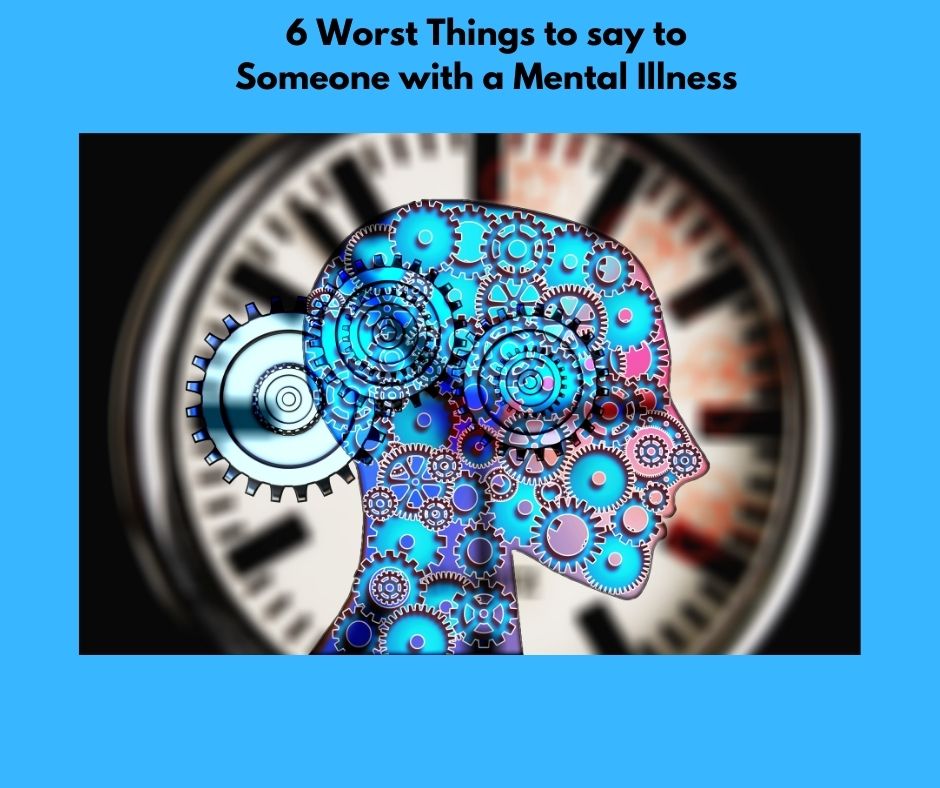When you’re struggling with a mental illness, it can be difficult to get the support that you need. How many times have you tried to talk to someone and they instantly go into problem solving mode? Or how many times have you tried to talk to someone and they tell you “don’t worry about it,” or “It’ll be ok.” It’s important to communicate with your friends and family and let them know what works and what doesn’t work. Many times, they want to be there for you, but they just don’t know what you need. So, talk to them. Give them the benefit of the doubt and let them know what’s helpful for you. Let them know that all you really want sometimes is for someone to listen. That’s all. Nothing more, nothing less. Just for them to be there.
Here are six things that are better left unsaid to those with a mental illness:
- “Things could be worse.” When you compare other people’s problems, you risk belittling your friends or family members’ situation and possibly adding to their feelings of guilt. We all have our own experiences and problems. And they are valid- to us. These experiences can feel bad, scary and worrying- to us. It’s never useful comparing one person’s experiences to another’s.
- “It’s all in your head.” Mental illness is not imaginary. End of story. Whatever the illness, it feels real to the person experiencing it; both emotionally and physically.
- “Snap out of it.” This comment is not only dismissive, but it can be damaging as well. It eludes to the idea that a person is in complete control of their illness and can just ignore it.
- “But you always seem so happy.” Many people hide their mental illness under a well-rehearsed mask. Most people are not quick to reveal their true selves and how they are really feeling. They often answer “I’m fine,” to questions about how they are doing. The saying “Don’t Judge a Book by its’ Cover” applies perfectly to this scenario. You never know what’s going on under the mask and deep within, so don’t make assumptions.
- “This will pass.” Sometimes it won’t just pass and sometimes time won’t make things better. There are many times when an intervention with a medical professional is warranted and when a loving, supportive and non-judgmental support network is required.
- “Just be positive.” If only it was this simple. It’s unrealistic to suggest that by becoming more positive, a person’s mental illness will just disappear. Yes, mindset matters. Yes, positivity is key. But, it’s not the only answer and sometimes, many times, it’s not enough.
So…what should you say instead??
It’s ok to not always know what to say. Many times, people aren’t looking for answers or suggestions. Often, just being there is enough; letting your family, friend or loved one know that they aren’t alone. I’ve always found that keeping it simple is best.
- Thank you for telling me
- I’m listening if you want to talk
- What can I do for you?
- Would you like to talk about what you’re going through or can I help connect you to someone?
- I love you
- I’m here for you. You are not alone
- I can see how hard this is for you
- I’m proud of you for opening up and asking for help
Ask yourself what would YOU like to hear? What would YOU find helpful? Turning the tables will help you figure out the right thing to say.









